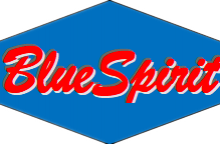90 chlorine tablet granular powder TCCA GRANULAR 90% 5-8 mesh 21 mt into 50kg plastic drum total 420 drums Trichloroisocyanuric Acid TCCA 90% for Swimming Pool
USD $1155 - $2999 /Ton
Min.Order:15 Tons
Quick Details View All >
RIZHAO BLUE SPIRIT E.P.T. CO.,LTD
Product Details
90 TCCA GRANULAR 90% 8-30 mesh 21 mt into 50kg plastic drum total 420 drums Trichloroisocyanuric Acid TCCA 90% for Swimming Pool
tcca 90% powder 21 tons in 50kg plastic drum total 420 drums per one container 20' CAS NO.: 87-90-1
Several steps of swimming pool water quality treatment
In the hot summer, swimming is one of the most popular entertainments. So how to clean and disinfect the swimming pool water?
1. Precipitation and coagulation.Use coagulant to solidify and settle the impurities in the water. Polyaluminum chloride is a commonly used high-efficiency coagulant. The chemical should be fully diluted first, and evenly sprinkled into the pool surface.
2. Sewage suction. After putting the coagulant, it is best to run the circulation system for half an hour. After flocculent sedimentation appears in the water, it should be still for 6-8 hours, and then the sediment will be discharged with the sewage suction equipment.
3. Disinfection. The most important step in swimming pool water treatment.Use chlorine disinfectants(such as trichloroisocyanuric acid, sodium dichloroisocyanurate, sodium hypochlorite, etc.) to disinfect the pool water. Keep the residual chlorine content of the pool water at 0.3-0.5mg/L, and regularly measure the amount of residual chlorine in pool water.
Precautions when using swimming pool water treatment chemicals
· Adjust the PH value. Sodium hydroxide and hydrochloric acid are the most commonly used PH regulators. When the pool water is tap water, the pH value of the pool water is generally between 6.5 and 8.5, and there is no need to adjust the pH value. When the PH value is low, use sodium carbonate or sodium hydroxide to increase the alkalinity of the pool water. When the PH value of the water quality is too high(above 8.2), appropriate amount of hydrochloric acid can be added.
· The use of chlorine disinfectants. When the water temperature reaches 30℃ or higher, or the water quality turns green, the dosage should be increased appropriately.
· Use of algaecides. The use of algaecides is generally not recommended, and the algae can be removed by regularly increasing the concentration of chlorine disinfectants. If you find small insects or moss, you can put the algicide copper sulfate in the water entering the swimming pool, and perform other water treatment steps after 2 hours. You can also use multi-functional TCCA containing copper sulfate in the usual swimming pool water disinfection process.
Contact Supplier

You May Like



New Products
Popular Searches
Recommended Products
Find Similar Products By Category